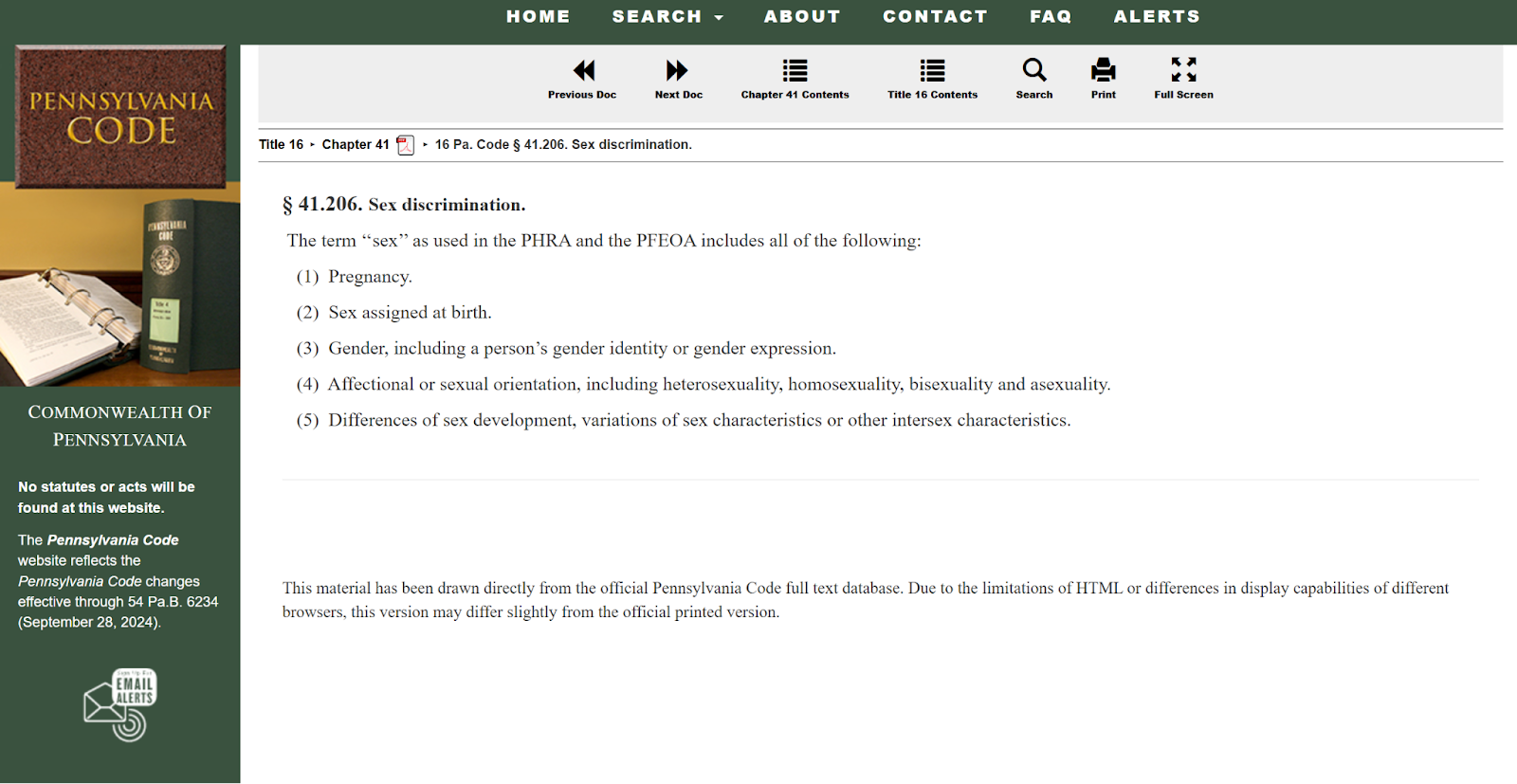(This column first appeared in Broad + Liberty)
Last month, the Biden administration quietly abandoned its plan to force school districts to allow boys to compete against girls in sports. Before that about-face, districts across the country had been threatened with a loss of federal funding if they failed to comply with yet another revision of the Title IX regulations — further gutting the original protections for girls and women.
However, as a result of widespread criticism, the U.S. Department of Education announced, “in light of the comments received and those various pending court cases, the Department has determined not to regulate on this issue at this time.”
Approximately half the states in the country have regulations or laws preventing boys from competing in girls’ sports.
Pennsylvania is one of 25 states allowing boys to compete against girls. Gov. Josh Shapiro, in his former role of attorney general and current role as governor, has been a strong advocate of supporting boys to invade girls’ spaces. In 2020, he posted, “trans women are women.”
Despite the elimination of the federal mandate, the commonwealth has no intention of changing its policies.
When asked whether the state would change its stance on boys competing against girls as a result of the federal rule withdrawal, Amanda Brothman from the Pennsylvania Human Relations Commission (PHRC), doubled-down on their position.
“Regardless of what happens federally, protections on the basis of sex assigned at birth, sexual orientation, gender identity, and sex characteristics exist for students in Pennsylvania. In 2023, the Pennsylvania Human Relations Commission released new regulations more clearly explaining the definition of sex. The Pennsylvania Human Relations Act and the Pennsylvania Fair Educational Opportunities Act protects students in ‘kindergartens, primary and secondary schools, high schools, academies, colleges and universities, extension courses and all educational institutions under the supervision of this Commonwealth’ unless the schools are ‘in their nature distinctly private.’”
The cited regulations expand the definition of the word “sex” to include “gender identity” and “gender expression.” The Pennsylvania definition also includes sexual orientation, sex characteristics, and other intersex characteristics.

Brothman included this document with her response and highlighted the section that reads, “Creating school policies that could provide different treatment for students based on their sex.”
The PHRC does not require legislative approval to promulgate new regulations. The agency operates under eleven commissioners appointed by the governor and confirmed by the Senate.
Hence, the definition of the term “sex” was easily changed in 2023 under the supervision of the PHRC commissioners. The agency was able to single-handedly modify the definition of a word that held the same meaning since 1955 when the Human Relations Act was enacted. The agency justified the changes based on the notion that “existing regulations provide no definition and no guidance for” the word “sex.”
The PHRC also issued a statement in support of the now withdrawn federal Title IX changes to force school districts to allow boys to compete against girls.
PHRC Executive Director Chad Dion Lassiter said last summer, “The Pennsylvania Human Relations Commission is committed to its duty to protect all students from illegal discrimination. A student’s sexual orientation or gender identity should not prevent them from receiving a quality and equal education.”
Yet, by changing the definition of the word “sex,” the PHRC is endangering girls both on the field and in private spaces, like girls’ bathrooms. Notably, the lack of definition of the word “sex” was not problematic for girls over the 68 years that it was used in the PHRC regulations prior to 2023.
Interestingly, the agency that is responsible for regulating secondary sports in the state, the Pennsylvania Interscholastic Athletic Agency (PIAA), recognizes that there are significant differences between male and female athletes.
“Based upon real and demonstrable physical and competitive differences between similarly aged and trained boys and girls in athletic performances, PIAA recognizes that combining genders for competition purposes would have a chilling effect on female participation in interscholastic athletics. PIAA further recognizes that, historically, girls’ participation has been much more limited than boys’ participation. To promote participation by the historically underrepresented gender in a fair competitive environment, PIAA, therefore, classifies sports by gender and limits mixed gender participation,” according to their bylaws (emphasis added).
The bylaws do not include a definition of sex and only use the terms boys and girls. It is apparently the local principal’s decision on how to classify a particular athlete’s gender.
“Where a student’s gender is questioned or uncertain, the decision of the Principal as to the student’s gender will be accepted by PIAA.”
According to PIAA, if a male student claims to be a girl and wants to run on the girls’ track team, then the school principal gets to decide whether or not to classify him as a girl and allow him to compete against other female athletes.
As a result of the turmoil around the issue, a number of female senators are proposing to revive the “Save Women’s Sports Act,” a version of which passed both the state house and senate in 2022 but was vetoed by then-Governor Tom Wolf.
The bill’s memorandum issued in early December explains the purpose of the act.
“Under this legislation, school athletic teams designated for women may not be open to those of the male sex. The legislation defines “sex” as the biological distinction between male and female, based on reproductive biology and genetic make-up….. Maintaining separate, biologically specific teams will ensure opportunities for women athletes, while fulfilling the goals of Title IX.”
The memo states, “the bill has strong bipartisan support,” and that will be necessary in order to be enacted. However, Governor Shapiro has already pledged to follow in his predecessor’s footsteps and veto a similar bill.
In the meantime, the PHRC is counting on a prior Supreme Court ruling to uphold its authority to create and implement regulations without legislative support.
“The Supreme Court noted that the power of an agency to promulgate legislative rules is so great that these rules can only be reversed by courts when ‘[w]hat has been ordered. . .appear[s] to be so entirely at odds with fundamental principles. . .as to be the expression of a whim rather than an exercise of judgment.’” [emphasis added]
While I am not an attorney or an expert on legal matters, changing the definition of sex to include gender identity certainly seems to be “so entirely at odds with fundamental principles.” I could further argue that the change is clearly an “expression of a whim rather than an exercise of judgement.”
European countries and even the mainstream media have begun to acknowledge that gender-affirming care and redefining the term sex have gone too far, and the practices are actually harming children — not helping them.
With very few exceptions for chromosomal disorders, there are two genders — male and female — and anything else is a preference or simply adolescent confusion. Government agencies need to stop misusing their power to change a definition that has existed since the beginning of time.
The state legislature needs to take a hard look at the PHRC’s manipulation of the definition of sex and its impact on the safety of girls and women, and Gov. Shapiro should be held accountable for disregarding the safety of half of his constituents.


